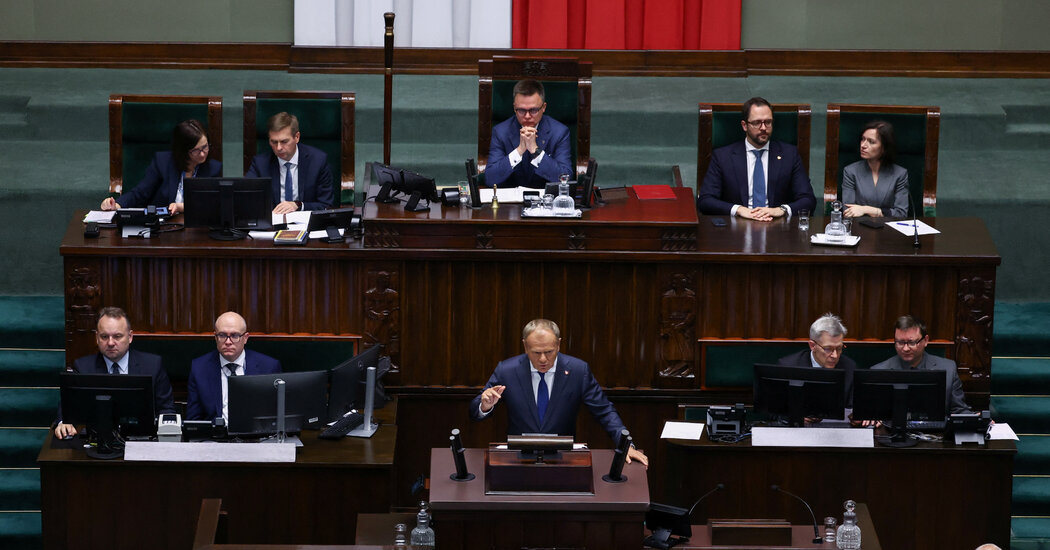Poland’s centrist government won a confidence vote in Parliament on Wednesday, averting political turmoil for the biggest country on the European Union’s eastern flank and a robust supporter of Ukraine.
Prime Minister Donald Tusk last week called the vote for legislators to endorse his government, hoping to reassert his authority after the victory of a political opponent, Karol Nawrocki, a nationalist historian, in a presidential election this month.
In the vote, 243 lawmakers voted in favor of Mr. Tusk and 210 against, giving him a majority in the 460-member lower house of Parliament.
Speaking to Parliament on Wednesday, Mr. Tusk acknowledged that Mr. Nawrocki’s win in the presidential vote would create challenges “greater than we expected.” But, referring to the president’s limited and largely ceremonial duties, he insisted that the result of that election “in no way reduces our responsibility, our duties or the scope of our power or competences.”
In an effort to win the votes of more conservative legislators in his coalition, Mr. Tusk promised to continue limiting immigration, saying that Poland would cut in half the number of visas for would-be migrants from Africa and Asia.
This, he said, was necessary because the previous and notionally anti-immigrant governing party, Law and Justice, had allowed in hundreds of thousands of migrants through corrupt visa schemes that are currently subject to a criminal investigation.
Mr. Tusk’s victory Wednesday in the confidence vote is a blow for the Law and Justice party, which had been hoping for a possible return to power in the event of early elections. A vote against Mr. Tusk’s government would have required him to resign after about only 18 months in office.
Bruised by Mr. Nawrocki’s victory in the presidential poll and under pressure from Law and Justice to resign, Mr. Tusk last week acknowledged the “gravity of the moment,” but, gambling on a confidence vote, he insisted that “we do not intend to take a single step back.”
Mr. Nawrocki, like Andrzej Duda, the departing president, is closely aligned with Law and Justice, and his victory over a liberal candidate backed by Mr. Tusk is likely to harden the stalemate between a presidency and a government pulling in opposite directions.
The Polish president has no say in setting policy but has veto power over legislation passed by Parliament, a prerogative that has hobbled Mr. Tusk’s government to carry out its agenda. That includes repairing relations with the European Union and reversing changes Law and Justice made during its time in power that compromised the independence of the judiciary and all but banned abortion.
Law and Justice lost its parliamentary majority in a 2023 election, but the coalition of legislators that Mr. Tusk put together to form a government has been a fractious alliance made up of liberals, centrists and conservatives that shared little common ground other than opposition to Law and Justice.
Anatol Magdziarz contributed reporting.











